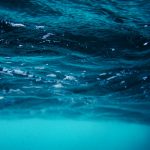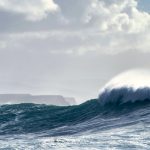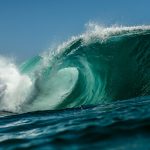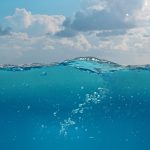 August 17, 2021 10:38 am
Published by Climate Extremes
August 17, 2021 10:38 am
Published by Climate Extremes
The ocean’s much larger heat capacity acts as “memory” suppressing the atmosphere’s “high-frequency variability” (over time scales of weeks) while producing oceanic motions that vary over longer time scales. This paradigm aims to explain how low-frequency variability emerges in the ocean. But, recently, this paradigm has been challenged.
 January 15, 2021 9:49 am
Published by Climate Extremes
January 15, 2021 9:49 am
Published by Climate Extremes
CLEX researchers introduced a novel methodology to examine the Southern Ocean's response to changing winds. They performed numerical simulations with a global ocean‐sea ice model suite that spans a hierarchy of spatial resolutions and driven by realistic atmospheric forcing conditions.
 December 18, 2020 7:12 am
Published by Climate Extremes
December 18, 2020 7:12 am
Published by Climate Extremes
Multiple ARC Centres of Excellence came together to produce short videos about their researchers under the title Q&ARC. This is the CLEX version featuring Rishav Goyal, Stacey Hitchcock, Andy Hogg, and Nina Ridder.
 August 7, 2020 9:16 am
Published by Climate Extremes
August 7, 2020 9:16 am
Published by Climate Extremes
CLEX researchers have demonstrated that ocean gyres (complete with a rich eddy field and strong western boundary current) occur even in the absence of wind forcing.
 May 13, 2020 10:33 am
Published by Climate Extremes
May 13, 2020 10:33 am
Published by Climate Extremes
By comparing two models, CLEX researchers found that the current generation of convection parameterisations fail to replicate the random, chaotic nature of real-life turbulent convection.
 February 11, 2020 4:25 pm
Published by Climate Extremes
February 11, 2020 4:25 pm
Published by Climate Extremes
In this work, CLEX researchers compared the performance of three ocean simulations – with low, medium and high resolutions – when representing marine heatwaves.
 March 18, 2019 2:24 pm
Published by Climate Extremes
March 18, 2019 2:24 pm
Published by Climate Extremes
In January Andy Hogg attneded the annual DRAKKAR meeting. DRAKKAR, is the consortium which supports global ocean model configurations in Europe.
 December 6, 2018 10:31 am
Published by Climate Extremes
December 6, 2018 10:31 am
Published by Climate Extremes
Chief Operating Officer, Stephen Gray, looks back on the annual workshop, discusses the new database to replace Clever and highlights the hump-day tips that have been developed by the Culture and Diversity committee.
 August 4, 2018 4:16 am
Published by Climate Extremes
August 4, 2018 4:16 am
Published by Climate Extremes
The Climate Variability and Teleconnections Research Program has formed into three separate clusters – SAM, Tropical Variability and Oceans.
 July 15, 2018 1:00 am
Published by Climate Extremes
July 15, 2018 1:00 am
Published by Climate Extremes
When Chilean researcher Dr Erasmo Macaya from Universidad de Concepción and Centro IDEAL stumbled upon foreign kelp washed up on an Antarctic beach, he knew he had found something significant. Research by an international, multidisciplinary team of scientists reveals just how important that finding was.










